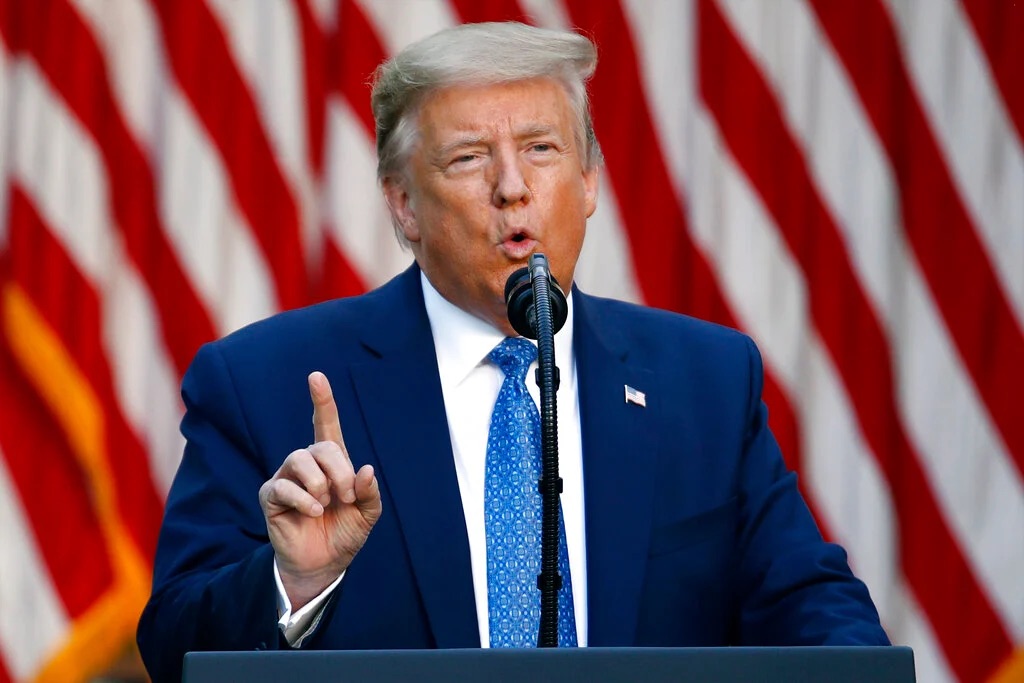
President Donald Trump’s administration has adopted a relentless win-lose mindset, a characteristic that has defined his life as a real estate mogul, reality television star, and leader of the United States. This week, Trump and his senior officials intensified confrontations over mass deportations, elite universities, and transgender athletes as part of an emerging “common sense revolution.” These deeds are part of a larger plan to upend national conversations around immigration and civil rights.
On Wednesday, the joint administration went to battle on all these fronts. White House press secretary, Karoline Leavitt, underscored the administration’s commitment to that stance by defending Abrego Garcia. He might very well be the first undocumented migrant who, without due process, was shipped off to a mega-prison in El Salvador. Garcia’s situation exemplifies the harsh realities of Trump’s immigration policy, which critics argue serves to victimize individuals while creating an atmosphere of fear within marginalized communities.
The Case of Abrego Garcia
Abrego Garcia’s case has turned into a lightning rod in the larger immigration policy arguments that have continued to rage. Leavitt pointed to a protection order that Garcia’s wife was able to secure in 2021 after Garcia allegedly assaulted her. Despite this reality, the Trump administration’s story makes Garcia out to be some kind of monster. Specifically, officials portray him as a terrorist, a member of the MS-13 gang, and an overall threat to American safety. His criminal convictions are mentioned, but the administration has not provided any public evidence to back this up.
“Nothing will change the fact that Abrego Garcia will never be a Maryland father; he will never live in the United States of America again.” – Karoline Leavitt
and most troubling of all — that Trump’s aggressive actions are not based on isolated cases. This extraordinary approach opens up profound questions about our conception of presidential power and civil rights. Yet Trump’s administration developed policies that some would argue were aimed at undermining the foundations of the liberal establishment. Still others think these efforts are about undoing wins on the progressive social side.
Escalating Tensions in Education and Athletics
This week was marked by increasing tensions over the educational and athletic landscape. Alternatively, Trump’s administration has wanted to go after elite universities because they’re using affirmative action. They make the case that these institutions are failing to live out meritocratic values. Trump has publicly condemned prestigious schools, asserting that they are hiring “woke, Radical Left idiots” who teach failure rather than success.
“Harvard has been hiring almost all woke, Radical Left, idiots and ‘birdbrains’ who are only capable of teaching FAILURE to students and so-called ‘future leaders’.” – Donald Trump
Beyond our classrooms, this administration has been on the frontlines of taking a hardline stance against transgender athletes competing in women’s sports. As Trump said himself, some people will “die on this hill.” He argues that this new environment puts women in elite athletics in danger.
“We have people that fight to the death because they think men should be able to play in women’s sports,” – Donald Trump
These positions are very attractive to movement conservatives ideologically. They have, for decades, sought to undermine and roll back what they consider radical liberality. Trump’s policies could offer significant electoral advantages by energizing his base and appealing to those who feel disenfranchised by current educational standards.
Legal Challenges and Public Perception
As they point out, it’s in direct contradiction to their own Human Rights Act. The order claims that Maine is in violation of Title IX, a federal law against sex-based discrimination in schools that receive federal funding. These confrontations are part of a broader history that pits state bills against federal law.
While Trump’s aggressive rhetoric has historically garnered support from his base, there are signs that it may undermine his popularity on certain issues. Public sentiment toward immigration is often complex. While some voters support strong border policies, others are increasingly concerned about humanitarian implications and due process violations.
Attorney General Pam Bondi stressed the administration’s focus on being hard on immigration. She reiterated that those who are a risk will not be granted re-entry into the United States.
“Abrego Garcia is not coming back to our country.” – Pam Bondi
Author’s Opinion
The Trump administration’s aggressive stance on immigration and education underscores its ongoing commitment to polarizing policies aimed at satisfying its base, while raising significant concerns about civil rights, due process, and social equity. The focus on mass deportations, restrictions on transgender athletes, and criticisms of educational institutions shows a broader effort to reshape societal norms, often at the cost of marginalized communities. While these moves may energize a certain segment of the electorate, they also risk deepening divisions in American society and stoking widespread discontent in the long run.
Featured image credit: FMT
Follow us for more breaking news on DMR
